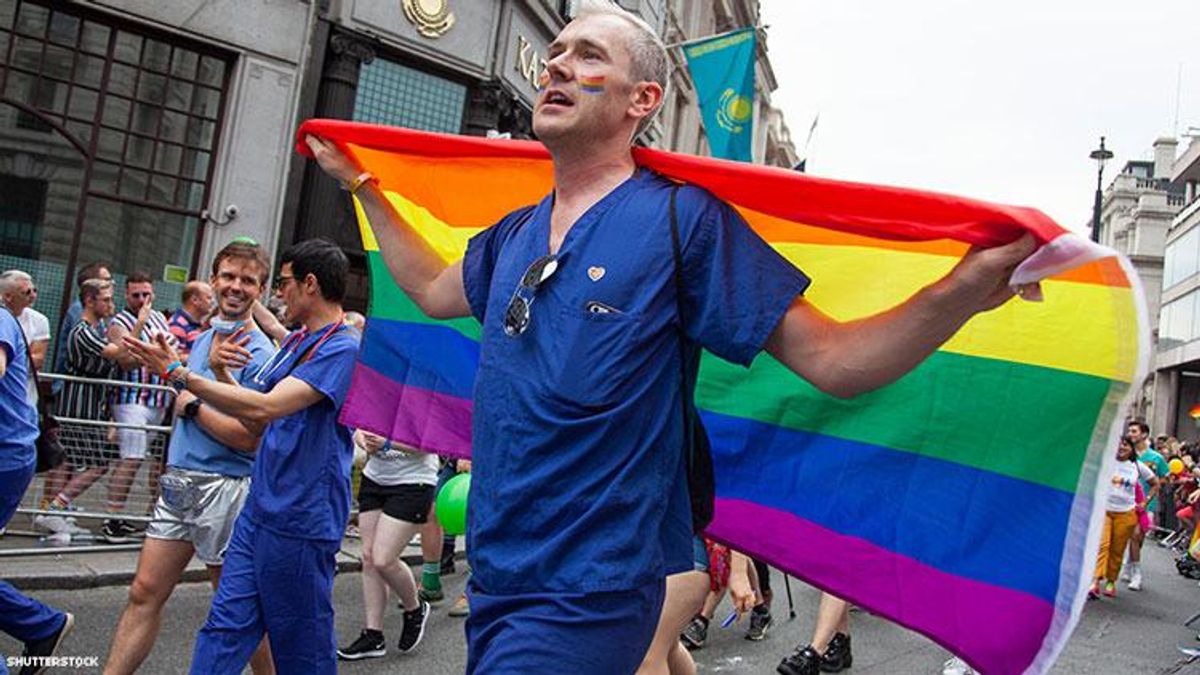For the second time in two days, a federal judge has ruled against the Trump administration's so-called conscience protection rule, which would allow health care providers to opt out of procedures to which they object on religious or moral grounds, even in cases of emergency or if their involvement in the procedures is tangential.
Judge Stanley Bastian announced the ruling Thursday in U.S. District Court for the Eastern District of Washington, in a lawsuit brought by Washington State. He said his written decision will follow. A federal judge in New York State had ruled Wednesday that the conscience protection provision was unlawful and unnecessary.
"The court agreed that all Washingtonians deserve to receive the full range of health care services," Washington State Attorney General Bob Ferguson said in a press release. "This rule would have disproportionately harmed rural and working poor Washington families, who have no alternatives to their local health care providers, as well as LGBTQ individuals, who already face discrimination when they seek medical care."
Donald Trump's administration, through the Department of Health and Human Services, issued the rule in May, and it was set to take effect November 22. Opponents of the rule, titled "Protecting Statutory Conscience Rights in Health Care," have said it is overly broad, granting refusal rights to workers who provide emergency services or those who are only tangentially involved in care, therefore endangering lifesaving health care for many patients, especially those from marginalized populations, and even encouraging such refusals. It could jeopardize the care of transgender people, of HIV-positive people, those taking PrEP, patients seeking abortion or contraception, and more. Clinics and hospitals that do not comply with the rule would stand to lose federal funding, as would state Medicaid and Children's Health Insurance programs. Opponents refer to it as the "Denial of Care Rule."
"Had the rule been allowed to take effect, a hospital receptionist could have refused to schedule an appointment for a patient seeking gender-affirming care or an orderly could have refused to transfer a patient to the operating room for an emergency abortion," notes a press release from the American Civil Liberties Union, which was involved in the New York case.
Washington State filed its suit in May; there have been several other legal challenges to the rule, including one that is pending in California. Under the rule, according to Ferguson, a receptionist could refuse to schedule an appointment for an LGBTQ patient, a pharmacist could decline to fill a hormone prescription for a transgender person, or a paramedic could refuse to transport someone experiencing a miscarriage to a hospital because the hospital might terminate the pregnancy.
In the Washington court, a Department of Justice attorney, defending the rule, said it does not allow discrimination but only allows denial of certain treatments. Bastian responded that this is "discrimination by another name," according to Equality Case Files. Assistant Attorney General Jeff Sprung, representing the state, emphasized particularly how much harm the rule could do to transgender patients, the organization noted.
In the New York ruling, U.S. District Judge Paul A. Engelmayer found that the conscience rule violated federal laws including Title VII of the Civil Rights Act of 1964, which bans sex discrimination, and the Emergency Medical Treatment and Labor Act, which requires hospitals to treat people experiencing medical emergencies regardless of ability to pay. He also said existing conscience protections for health care workers are sufficient and that there is no rash of complaints from workers about being forced to participate in procedures that offend their religious or moral beliefs.
Bastian agreed with Engelmayer that the rule was "arbitrary and capricious," exceeds HHS's lawful authority, and is unconstitutional in some respects, Equality Case Files tweeted. He said his written ruling will deal with some issues not addressed by Engelmayer.
The Washington Blade, which first reported on Bastian's ruling, has sought comment from the Justice Department and HHS but has yet to receive a reply. On Engelmayer's ruling Wednesday, an HHS spokesperson said it was under review but that the department would have no immediate comment.
This is not the Trump administration's last attack on services for marginalized populations, though. Last week it announced plans to allow organizations receiving HHS grants for adoption and foster care placement, homeless shelters, HIV services, and more to discriminate against clients who offend their religious beliefs. The administration also wants to eliminate provisions of the Affordable Care Act that ban anti-transgender discrimination.


















































































